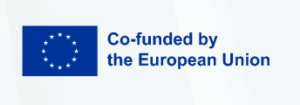
Masaryk University (MUNI) , the second-largest public university in the Czech Republic, boasts a significant role in education and research, particularly through its Faculty of Economics and Administration (ECON MUNI). As a leading institution, it engages in extensive research and international projects across its 10 faculties, demonstrating a strong commitment to both regional and global academic contributions. The Department of Corporate Economy, a core component of ECON MUNI, emphasizes business management and informatics through comprehensive courses and programs at bachelor, master’s, and doctoral levels. This department is recognized for its tradition in research since its establishment in 1999, focusing on enterprise activities and their broader economic impact. MUNI’s mission to prepare students as responsible leaders and contribute to high quality, impactful research aligns with the objectives of the MICRO4ASIA project, highlighting its strengths in international collaboration, ethical leadership, and continuous learning.
University of Dubrovnik (UNIDU) was established in 2003. It offers students the opportunity to study in one of Croatia’s largest and most popular cities. The city, which was named a UNESCO World Heritage site in 1979, is located on the Adriatic sea, and fittingly the university is traditionally strong in maritime sciences. The university has a student body of approximately 2,000 people, and interested applicants can find the necessary paperwork on the university website. The university is divided into six departments. The University of Dubrovnik holds the distinction of being one of the pioneering universities in Croatia to establish micro-credentials. As part of the MICRO4ASIA project, the university will leverage its experience and expertise in the development, design and recognition of micro-credentials, and share them within the European context.
University of Siena (UNISI) is one of the oldest and first publicly funded universities in Italy. It was founded in 1240 and it counts around 20,000 students. The University of Siena awards first cycle, second cycle and single long cycle degrees in the following fields: Economics, Pharmacy, Law, Engineering, Arts and Humanities, Arts and Humanities in Arezzo, Social and Political Science, Medicine and Surgery, Dentistry and Dental Prosthodontics, Mathematical, Physical and Natural Sciences and, carried out in fifteen Departments. UNISI, as a top-ranking European university in the field of economics and finance, will play a key role in the project by providing assistance to partner country universities in the development of micro-credentials in the areas of economics, banking, and finance.
 Institut de Haute Formation aux Politiques Communautaires (IHF) established in Brussels in 2003, specializes in VET, adult education, and higher education. With training provided to over 5,500 learners, IHF focuses on entrepreneurship, digital and soft skills, and EU policies and regulation. They have significant experience in managing and disseminating CBHE projects under Erasmus+, leveraging a strong international network for innovative project contributions. As an active member of the DIGCOMP community of practice, IHF contributes to digital competences in education. Specializing in skills, competences, and human development, particularly micro-credentials, IHF brings over 20 years of experience in EU-funded projects and expertise in EU educational policies. Their role in the MICRO4ASIA project includes leveraging this expertise in both horizontal and technical work packages, and providing insights on micro-credential design and delivery.
Institut de Haute Formation aux Politiques Communautaires (IHF) established in Brussels in 2003, specializes in VET, adult education, and higher education. With training provided to over 5,500 learners, IHF focuses on entrepreneurship, digital and soft skills, and EU policies and regulation. They have significant experience in managing and disseminating CBHE projects under Erasmus+, leveraging a strong international network for innovative project contributions. As an active member of the DIGCOMP community of practice, IHF contributes to digital competences in education. Specializing in skills, competences, and human development, particularly micro-credentials, IHF brings over 20 years of experience in EU-funded projects and expertise in EU educational policies. Their role in the MICRO4ASIA project includes leveraging this expertise in both horizontal and technical work packages, and providing insights on micro-credential design and delivery.
University of Economics of Ho Chi Min City (UEH), a top-ranked university in Vietnam, has made significant contributions to the scientific research community through international publications, applied studies, and a wide research network of over 125 partners. With a group of highly qualified lecturers from various prestigious local and international institutions, UEH has successfully produced many graduate classes in Economics and Management, all of whom have held important roles in various government offices and agencies, higher education institutions, and local and international corporations. UEH is proud to embark on a new journey to become a Sustainable and Multidisciplinary UEH University. It has received numerous domestic and international rankings and awards, including being the leading university in Vietnam and in the top 1000 Best Business University in the world, and top 25 universities in the world in the field of Knowledge Transfer.
Banking University of Ho Chi Min City (BUH), affiliated with the State Bank of Vietnam since 1976, provides a wide range of academic programs across 18 majors to over 13,000 students. With a faculty of nearly 500, including experts and researchers, BUH operates three campuses, the largest spanning over 11 hectares. Recognized for its contribution to economic research, BUH ranks among the top Vietnamese universities for international publications in economics. It has produced over 50,000 graduates who occupy significant roles in diverse sectors.
National Economics University of Hanoi (NEU) was founded in 1956 and it is one of the leading universities in Economics, Management and Business Administration in Vietnam. NEU place a high priority on the quality of teaching and the employment preparation for students in an increasingly competitive environment. With 1200 faculty members and staffs including more than 150 professors and associate professors and over 200 PhDs., NEU currently offers training and education to over 35,000 students annually at Bachelor, Master, and PhD levels.
National University of Laos (NUOL) established in 1996 in Vientiane, is a prominent non-profit public higher education institution recognized by the Ministry of Education of Laos. With a significant student body (25,000-29,999 students), NUOL offers a wide range of higher education degrees including bachelor’s, master’s, and doctoral degrees across various fields of study. Notable for its selective admission based on entrance exams, NUOL is open to international candidates, highlighting its commitment to diversity and global engagement. The university supports a comprehensive educational experience with facilities like a library, housing, sports, and opportunities for study abroad, exchange programs, and online learning.
Laos Banking Institute of Laos (BIBOL) is equivalent to a Department under Bank of the Lao PDR established in 1979. BIBOL is providing Bachelor degrees majors in Banking, Accounting, Finance, Micro finance and Auditing; also providing a Master degree of Banking and Finance. Moreover, BIBOL has been provided many training courses related to Banking, Finance, Accounting and so on. In the near future, BIBOL plans to undertake more research in order to enhance BIBOL academic staffs along with increasing technical relations with other organisations in Laos, Regional and overseas.
Champassak University (CU), a public institution in Laos under the Department of Higher Education, Ministry of Education and Sports, aims to offer higher education in Southern Laos, focusing on training human resources with academic knowledge and societal service readiness. With six faculties including Agriculture and Forestry, Education, Economic and Management, Engineering, and Natural Sciences, CU is equipped with facilities like a Laboratory Center, ICT Center, and Agricultural Research Demonstration Centers. It boasts 420 staff, 3,547 students, and offers 5 Master’s and 41 undergraduate programs. CU has established international collaborations through 35 MoUs & MoA and 13 networking agreements with partners mostly in Asia and Europe.


Funded by the European Union. Views and opinions expressed are however those of the author(s) only and do not necessarily reflect those of the European Union or European Education and Culture Executive Agency (EACEA). Neither the European Union nor the granting authority can be held responsible for them.